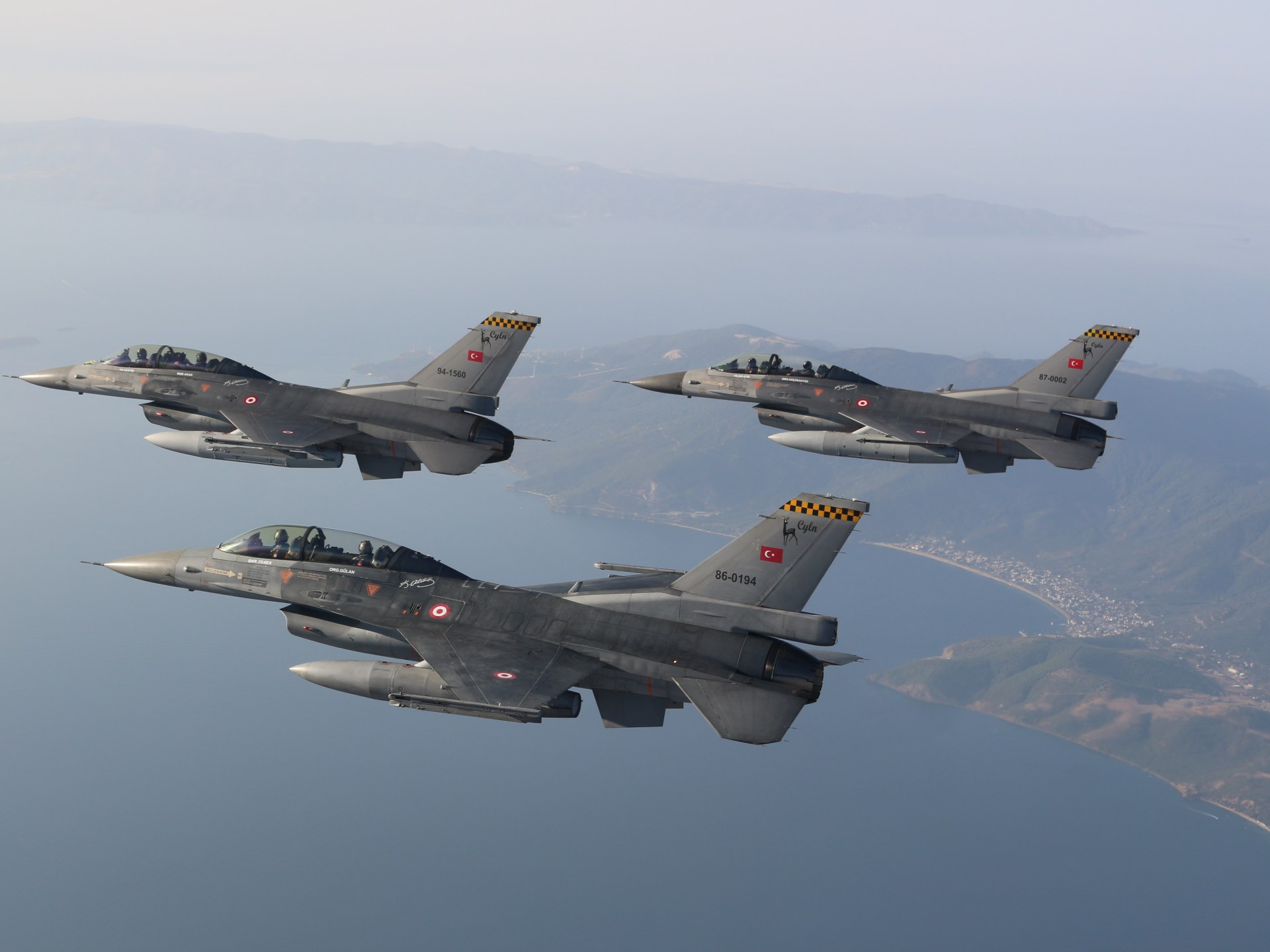Sources in the Turkish Ministry of Defense revealed today, Sunday, that Turkish fighter jets were subjected last Tuesday to what they called harassment from the Greek side while making flights in international airspace over the Aegean Sea and the eastern Mediterranean, but Athens denied the Turkish accusations.
A source in the Turkish Defense Ministry said that on August 23, Greece tracked the Turkish "F-16" planes through the radar of the "S-300" system stationed on the Greek island of Crete, adding that the fighters were tracked. Via radar target tracking and missile guidance, it is evidence of Greece's activation of the "S-300" batteries.
The source described this Greek behavior as aggressive based on the specific rules of engagement from the North Atlantic Treaty Organization (NATO), and the source indicated that the fighters returned to their bases safely after completing their tasks as planned.
The Turkish fighters were conducting a reconnaissance mission at an altitude of 10,000 feet west of the Greek island of Rhodes.
The US Associated Press reported that Turkey summoned the Greek military attache, and filed a complaint about the incident with NATO.
Greek Novel
However, the Greek public TV channel ERT quoted sources in the Greek Defense Ministry denying the Turkish account, adding that "the Greek S-300 air defense system never shut down (sensors) of the Turkish F-16s."
Turkey accuses Greece of harassing its planes through the Russian S300 air defense system, amid a significant escalation of tension between the two countries:
When and how did Greece obtain the Russian defense system?
What do recent developments indicate?
Do you lead Turkey to announce the activation of the Russian S400 system?
pic.twitter.com/Trm8FiGEgf
— Ismail Kaya (@Ismail_kaya88) August 28, 2022
It is noteworthy that the Turkish fighters were also harassed last week by placing them in the field of the Greek fighters' radar while carrying out missions within the framework of NATO in the region.
And between the two neighboring countries that are members of NATO, differences over sea and air borders, and the air forces of both sides are pushing to carry out patrols and interception missions at an almost daily rate, especially in the vicinity of the Greek islands near the Turkish coast.
Athens accuses Ankara of sending its planes to fly over the Greek islands, while Turkey complains that Greece is massing soldiers on islands from the Aegean Sea, in violation of peace treaties concluded after the two world wars.
The border dispute between Ankara and Athens in recent years has also resulted in an additional problem that strains the relationship between the two sides, which is the dispute over the exploration of natural gas by Greece and Turkey in the eastern Mediterranean.

